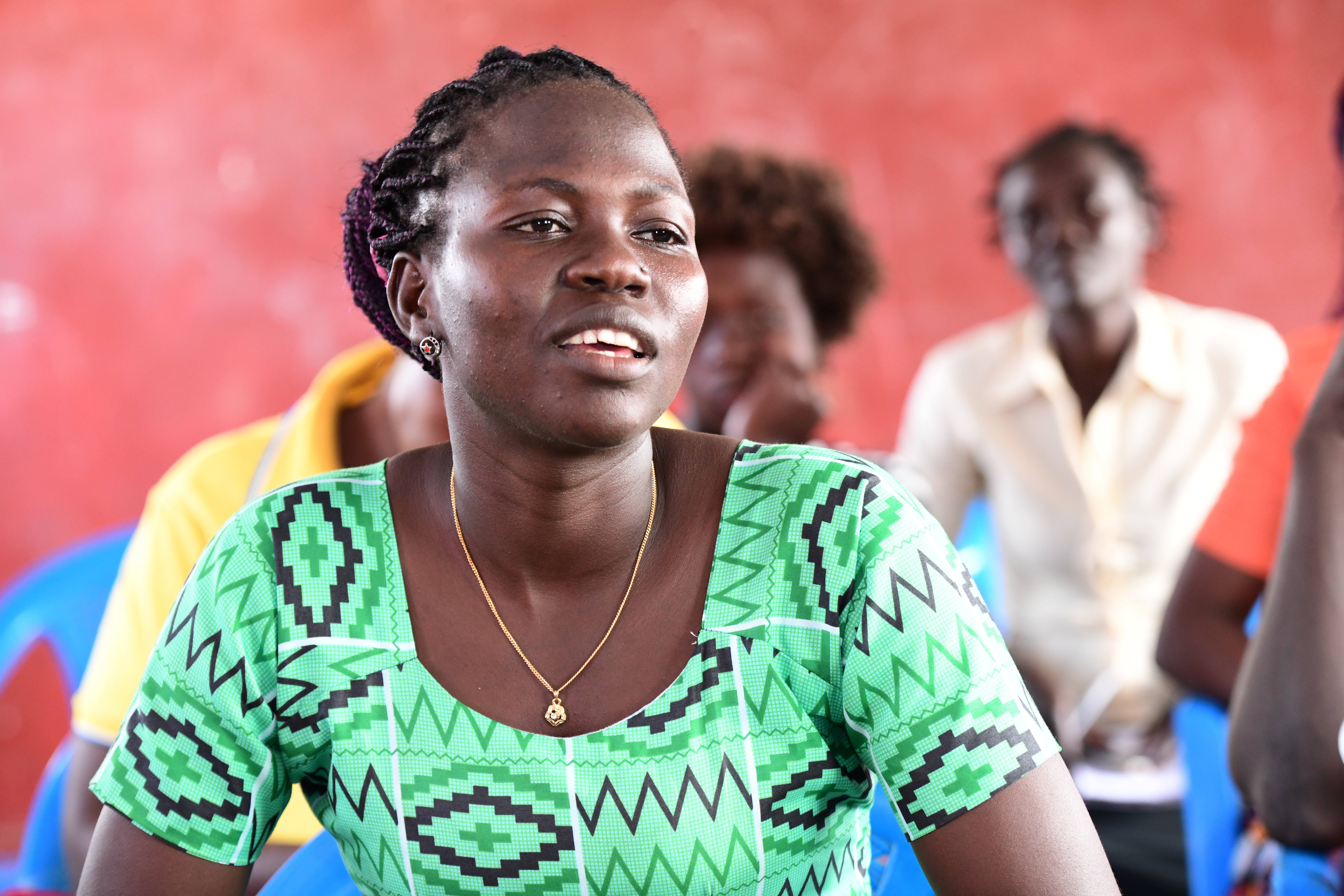Asumpta Aputu's journey to leadership: Learning to write my name paved my journey to be a community leader
Date:
Asumpta Aputu, a 33-year-old South Sudanese refugee in Bidibidi camp of northwestern Uganda, never had an opportunity for formal education at an early age.
Raised by an uncle in Yei County of South Sudan, Asumpta's childhood was marked by a lack of formal education and an unjust distribution of domestic responsibilities.

“My uncle believed that educating a girl child was a total waste of his resources. He only sent his boys to school while me and my cousins were subjected to tasks of digging and cooking for the family,” she recalls.
In 2016, after violence erupted in her community in South Sudan, Asumpta was forced to flee to Uganda alongside many other families from her community.
“I never understood English, communicating and writing in the new environment became one of my greatest hurdles” she remarks.
In 2022, Asumpta learned about the English for Adults (EFA) training program through a community leader in Bidibidi Settlement. The EFA program, which aims at improving lives and employment prospects of refugees by equipping refugee and host community women with literacy, numeracy and leadership skills, is one of the interventions under UN Women integrated four-year Leadership, Empowerment Access and Protection (LEAP) project funded by Government of Norway and implemented in refugee hosting districts of Yumbe, Adjumani, Terego and Kyegegwa. Asumpta is one of the 1,478 refugees (1,154F, 324M) who benefited from the EFA programme in 2023, which was implemented by UN Women’s Responsible partner, Refugee Law Project. Alongside vital literacy and numeracy skills, as part of the program Asumpta gained knowledge and skills to engage in economic empowerment initiatives as well as self-advocacy. This involves refugees speaking for themselves around inclusion in existing humanitarian response planning and programming.
“I’m so grateful to have been chosen to participate in this program. I often got challenged whenever there were meetings in the community requiring us to write down our names. I felt embarrassed that I couldn’t write my own name at my age. Since the training, I have been able to write my names clearly in addition to expressing myself to a health worker whenever I’m unwell as well as have interactions with school authorities about my children’s education,” Asumpta explains with a smile.
Asumpta is now using her leadership skills to advocate for ending violence against women and girls, sharing information on sexual reproductive health for adolescents as well as liaising with school authorities to retain girls longer in school and reintegrate those who dropped out due to various reasons.
“I have been able to reintegrate 20 girls back to school. Majority of these girls dropped out of school due to pregnancy related issues,” she says.
Asumpta's impact reverberates through Bidibidi refugee camp, where community members applaud her for instigating significant behavioral changes. Her efforts are instrumental in disseminating vital information, especially regarding supporting adolescent youth to lead meaningful lives.